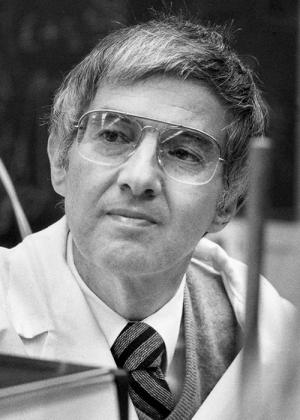When Allan H. Conney, Ph.D., published his first paper on page 450 of the journal Cancer Research, in 1956, he did not realize the significance that “p. 450” might have on his research.
Dr. Conney conducted groundbreaking work in characterizing the cytochrome P450 family of enzymes, which metabolize drugs, hormones, carcinogens and other environmental chemicals. His progress in identifying drug metabolic pathways and the stereochemical properties of chemical carcinogens that caused mutations in DNA contributed greatly to our understanding of the mechanisms of cancer causation by environmental chemicals. His work showed that an inactive compound could be metabolically activated to cause genetic mutations and induce cancer.
A well-known and honored pioneer in the field, Dr. Conney’s laboratory was one of the first to demonstrate the cancer preventive properties of a variety of naturally occurring compounds found in fruits and vegetables, including flavonoids, green tea, and resveratrol, and to prove the importance of exercise for cancer prevention. His early laboratory studies demonstrating that alterations in carcinogen metabolism could prevent cancer incidence in a variety of animal cancer models served as the initial basis for further work in genetic models of cancer. Based on his knowledge that people metabolize compounds and drugs differently, Dr. Conney was an advocate of individualized cancer prevention. From 1990 to 1999, he held an Outstanding Investigator Award from the National Cancer Institute.
To learn more about Dr. Conney, see these articles in Rutger’s Today and Cancer Prevention Research.

